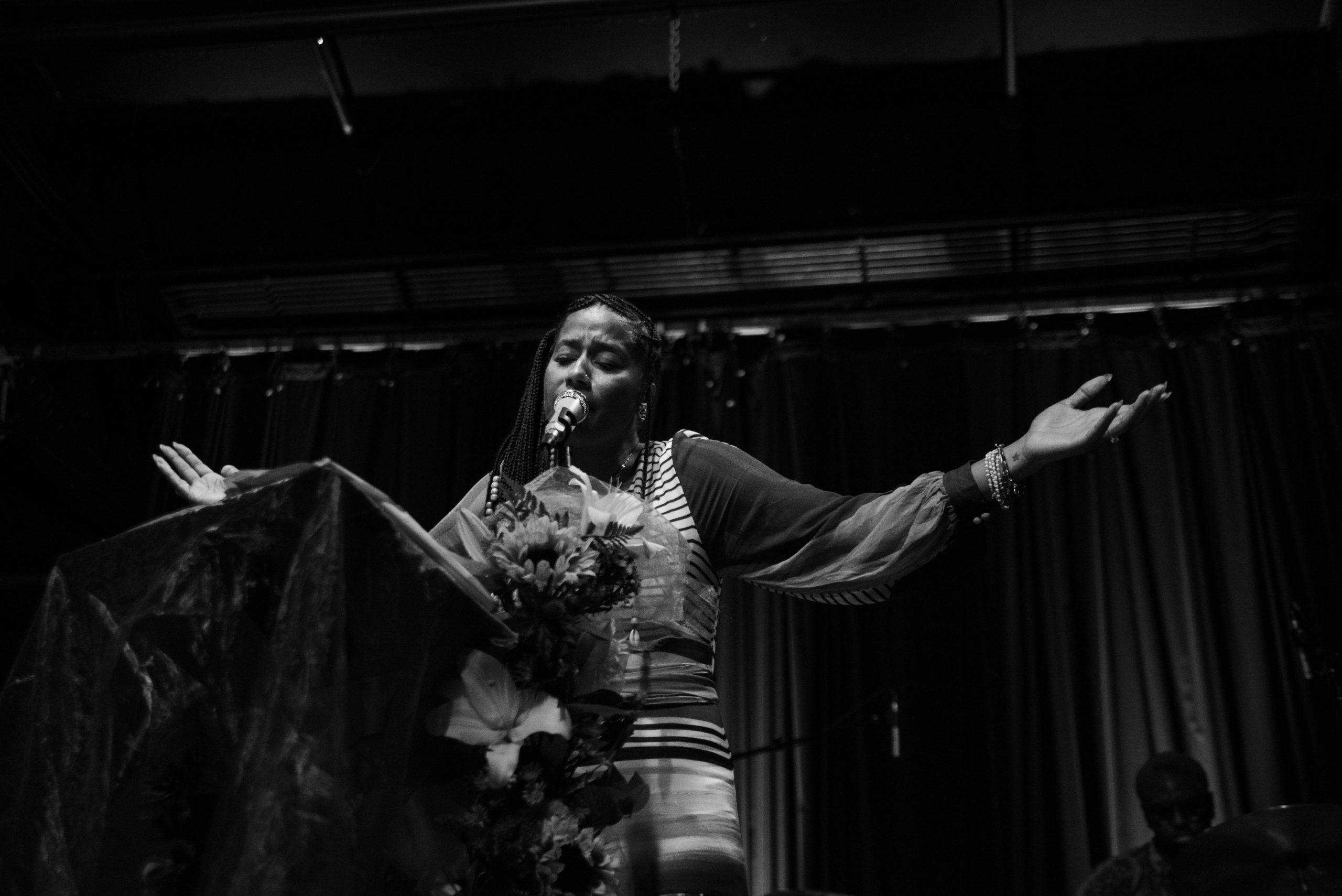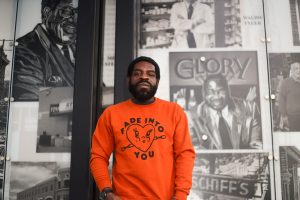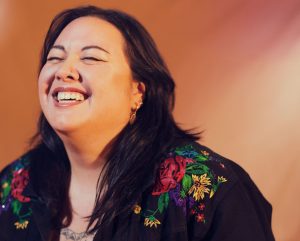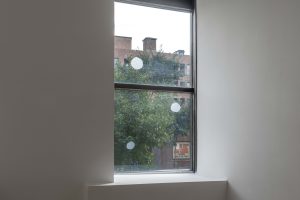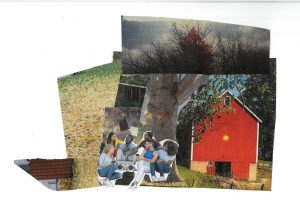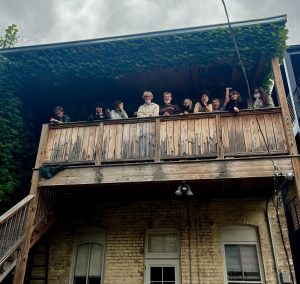Harnessing a celebratory high, I took myself out for a show on a late, summer Sunday. The day before was my one-year anniversary of moving to Chicago. I commemorated it by going on a bike ride from the Northside to the Southside. Upon moving to the Midwest from Massachusetts, I was skeptical of Lake Michigan measuring up to the enormity of the Atlantic. However, to my pleasant surprise, I have never again failed to romanticize Lake Michigan in its freshwater glory. When considering how to honor an entire year of building a life that I dreamt of, I packed a lunch in my worn backpack, rode my bike for what felt like endless miles along the Lakefront path, and basked in the sun and my sweat. This was a homecoming to myself.
Aja Monet—a Brooklyn native who lived in Chicago and Southern Florida and now resides in Los Angeles—is an artist who lived several lives as a writer, community organizer, and educator. In her fifteen-city tour, she captivates her audiences with her signature surrealist, blues style—spoken word married with vibrant, smooth jazz in her debut album, When the Poems Do What They Do. Brought to us by her talented and decorated ensemble—Peter CottonTale on keys; Runere Brooks on bass; Nova Zaii on drums; Nico Segal on trumpet; and Idris Daniel on percussion—synesthesia was evoked. Each piece shares facets of lineage, love, and longing for a world that sees her and her people. It pushes back against a system that was made to tire us and break us down. There is urgency in her lyrical lines that insist another world full of goodness is possible.
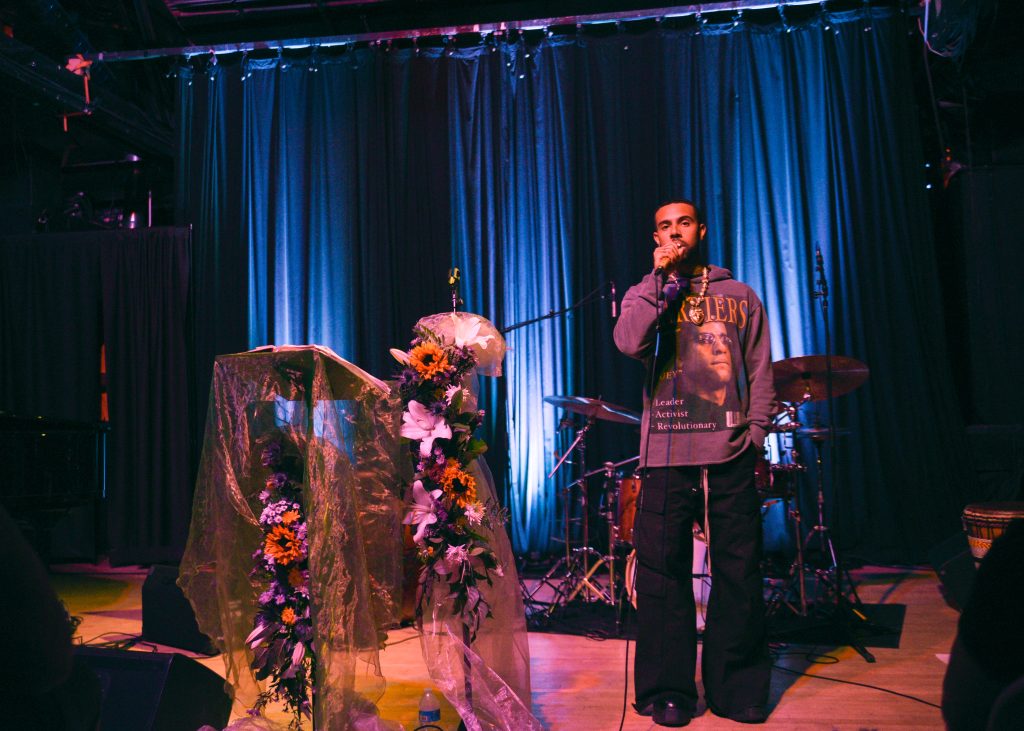
The show opened with the soft yet triumphant piano solo by Julian David Read, which he wrote for his two-week-old daughter. It eased me into the night of breathtaking performance. His tribute to the miracle of childbirth pulled on every heartstring. It was a thoughtful way of honoring the gift of life—something Monet’s poetry reiterates. Before introducing Monet, Chicago rapper Vic Mensa performed his verse from “Bad Man Lighter 2.0” by Seun Kuti and Black Thought which reveres ancestors while vehemently rejecting colonialism’s insidious grasp on his present self and posterity. Furthermore, it calls on the crucial need for collective, radical love within ourselves and our communities. Without this, revolution is not possible. There could not be a more fitting piece to introduce his longtime friend, Monet, and her world-building work.
What helps me feel brave is knowing that Monet walks with me. She urges us to heal with the understanding that joy, specifically, Black joy, is a non-negotiable for survival. Monet creates a safe environment where there is inherent safety to break down because there is a promise that we will rebuild together. Thus, I allow myself to unravel. Monet’s “unhurt” warns the audience about trouble that could sweep us up at any moment. Even with all of the possible hurt in the word we “will love / and it will unhurt us / all.” She tenderly invites the audience to grieve with her while acknowledging the collective grief that we are all trying to make sense of. There is space to build a life around and with our grief. And it is possible to meet our grief where it is and walk alongside it.
With a heavy and soothing voice, Monet manages to cut through the air and command the room. “i am,” a piece searing with conviction that her existence is an amalgamation of her ancestors, declares her freedom in fluidity. She shares vignettes that hold various contradictions of herself. There are times that parts of herself conflict with another, but that uncomfortable space is the soil for growth. Generously, she lets the listener in on a secret—to live your truth is to allow yourself to evolve.
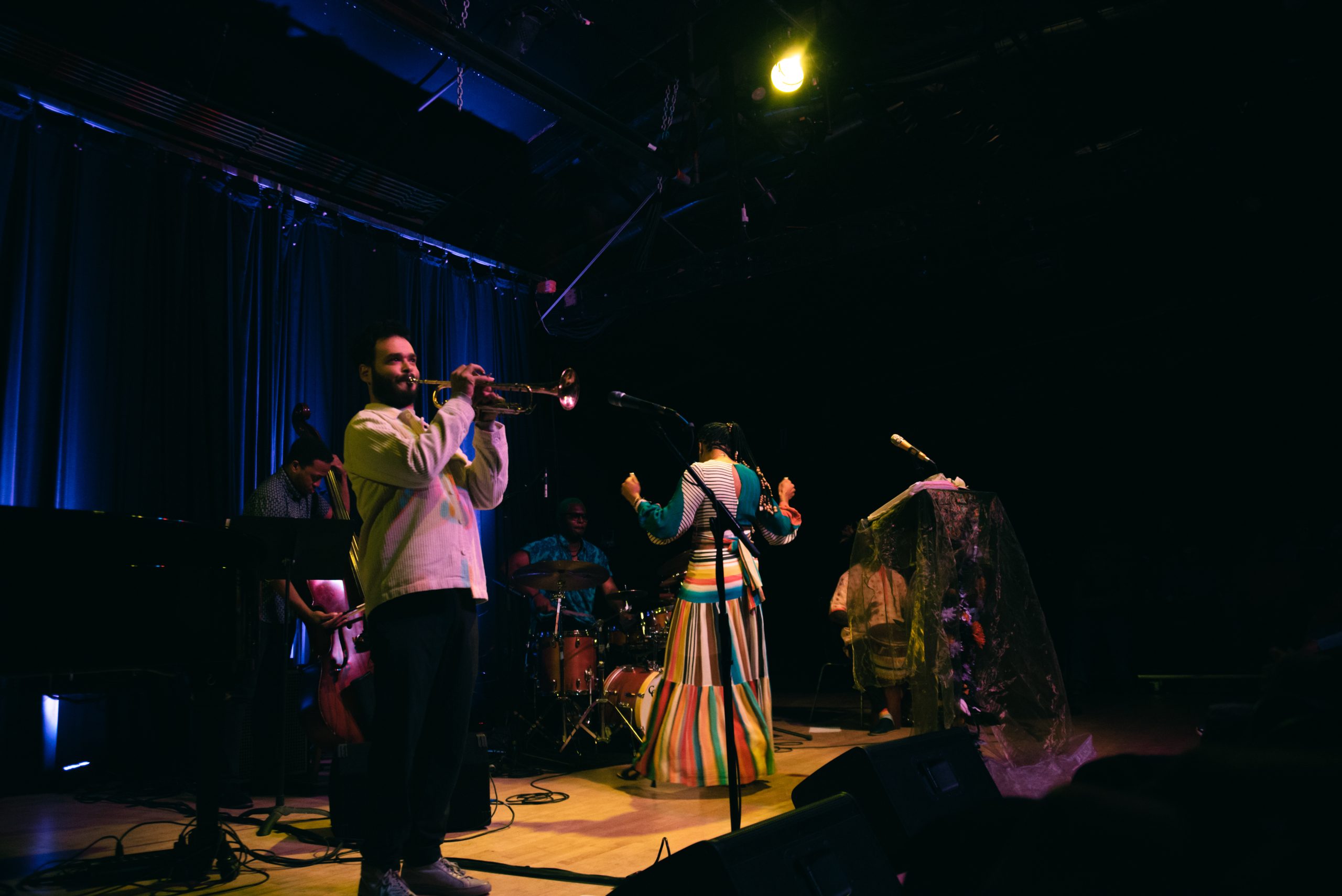
For example, “why my love?” Monet shares how she sees, feels, and embodies love. The poem walked me through her experience with her “abundant, limitless, endless, giving, [and] make no mistakes ‘less they [are] lessons,” love. This extension of her has its own sharp mind that she is not afraid to use. Each line crescendos with more confidence that her love is and always will be worth the wait. Her love is a sprawling landscape—irreplicable in magnitude and effect. And that love, while strong, also mourns. I clutch my own heartbreak.
With Monet, the audience aches together. The ache that holds itself for as long as it can before eventually breaking down into wailing lament. During the performance, I felt kinship with the audience while hearing affirmative hums and muffled sobs from heavy chests. It reminded me that even in our loneliest, most hopeless moments, there is a promise of connection. But there was an intimacy in how many folks in the audience have a history with the poet. It feels almost too intimate for me to be a part of—like a sacred language that only those who have weathered the same specific storms can utter to each other. The poem ruminates on why the love we have and want to share is not held by others with the same tenderness. Perhaps, the most heartbreaking is not the moments that we spend alone, but the stretches of time where we and our love go unseen. It is a quiet ache that sinks deep into one’s bones. How is it possible to feel we are too much yet not enough simultaneously?
Even “Castaway,” a delicate yet triumphant dance of piano keys, supports the hopefulness of knowing we survived so much and will continue to as long as we hold onto each other and ourselves. It honors our beginnings and in-betweens and asks us to imagine infinite possibilities. Our lineages buoy and steer us whenever we need a reminder of who we are. When I first heard this piece, I knew it understood a part of me I had yet to meet. It felt otherworldly—the cadence of collective inhalation and exhalation. It swayed my body back and forth. Gently, it coaxed quiet tears that turned into uncontrollable sobs. And as I sat in the crowd, it named the grief I have been scared to acknowledge: the life I dreamed of is lonely sometimes.
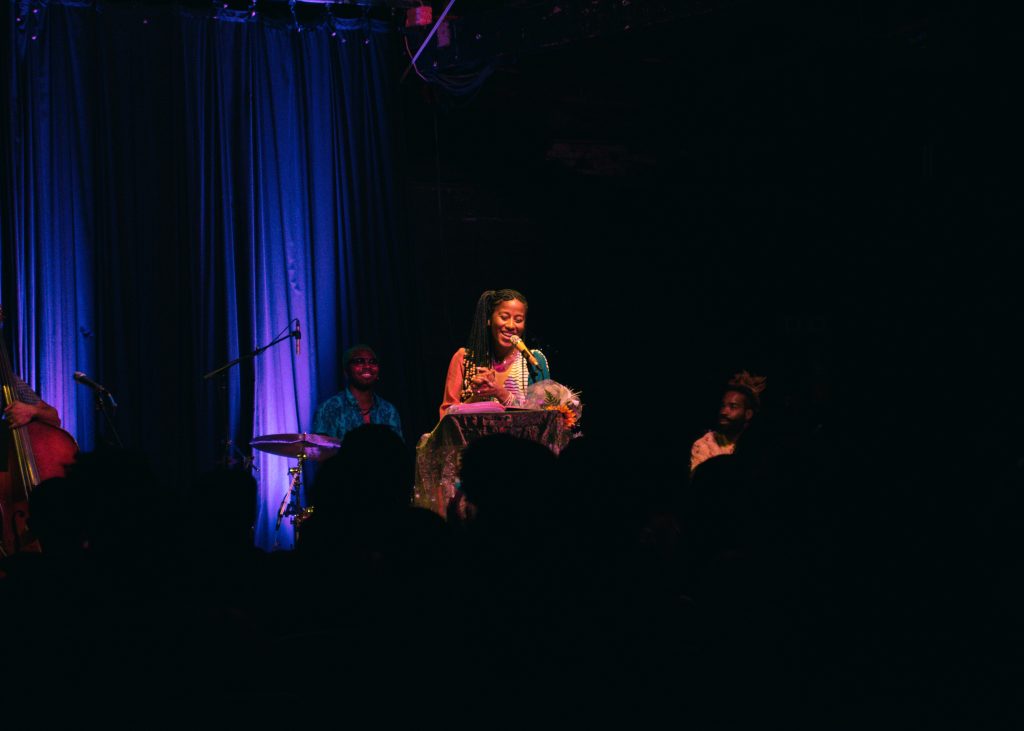
It is important that I name that grief: the tension between longing for my homeland and making a new home away from the land of my ancestors. I feel it with the velocity of a tsunami when my mother tongue trickles out fragmented and unsure. Every time friends recount weekend trips to the suburbs to see their grandparents or holiday traditions with cousins, I try so hard to find footing. I inherited the generational trauma from my parents who left their country for a ‘better life’ in the US. While my move from New England to the Midwest was geographically less significant, it sits heavy during the days that Chicago no longer embodies the feeling of a big city but a small town. However, through it all, I root myself in the knowledge that I am guided by my ancestors, the strength of every body of water, and my purpose of building the life that I want. It is my most radical act of self-love.
Between poems, Monet reminisces on her relationship with Chicago. She speaks on how sharing the stage with Mensa and Segal—whom she met while organizing a benefit show to support those in Haiti devastated by the earthquake of 2010 and continuing the work they started—feels full circle. Despite the differences in our identities, she generously extends affirming space for me to reflect on how the city has helped shape my own life and purpose. During this night of renewal, Monet’s storytelling touched me with the same compassion that she has for her loved ones. Not only does she leave room for me, but metaphorically scootches over as a way to say: Yes, you. You belong here, too.
The night closed with illustrious Chicago Poet Laureate, avery r. young, singing a soulful, regenerative song repeating “love is everywhere.” The audience roared in jubilation. While I am not religious, experiencing this song radiating pure joy is what I imagine to be like the power of prayer. It holds the kind of soul-filling nourishment that stays with you long after. It is evident that Monet’s poems recognize and amplify the collective’s experience. In a world that wants to write off marginalized groups as monoliths, Monet fiercely pushes back and says I am here with you in what we share and what we do not. Most importantly, we are moving towards the same goal. So, let us heal loudly while building a better world and inviting each other home.
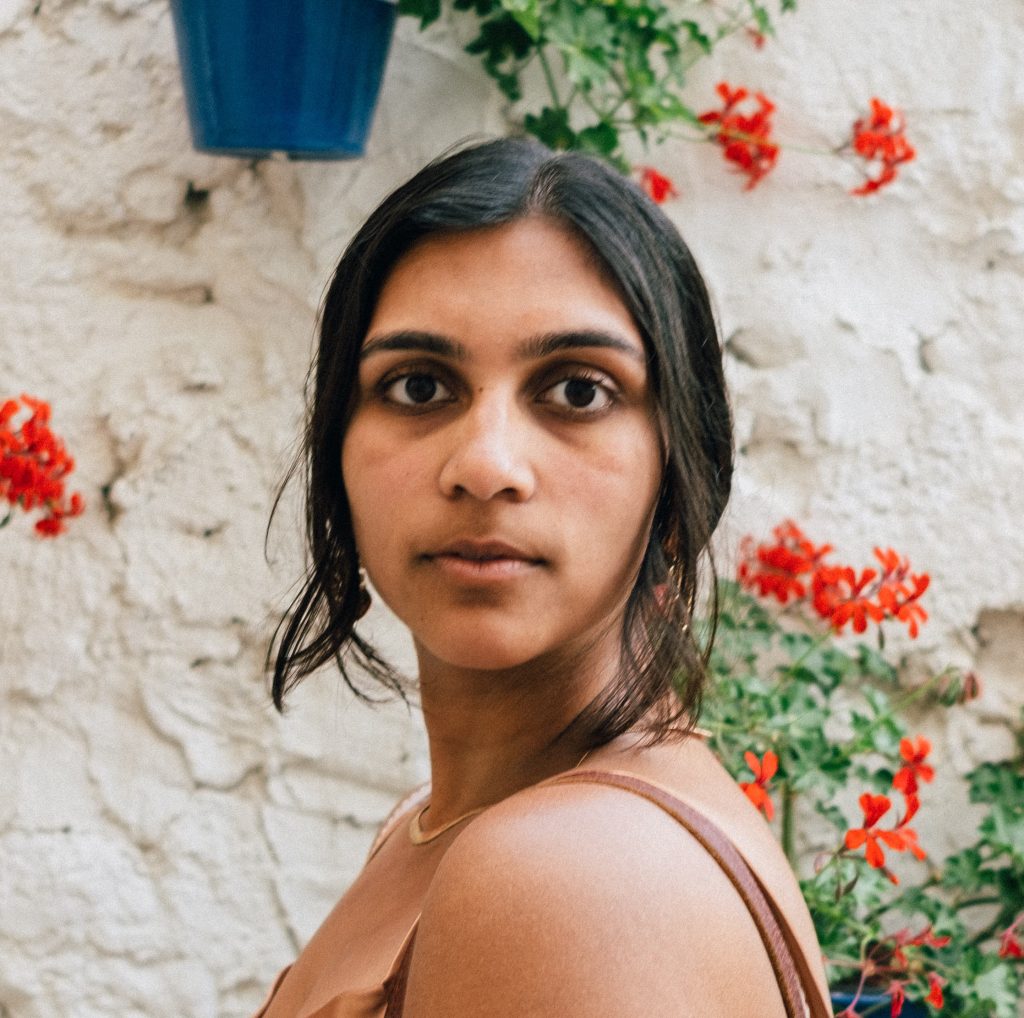
About the author: Shivani Kumar is a poet from Worcester, Massachusetts. Her work is guided by her passion of connection to destinations, opportunities, and self. Her poems pull a reader into a world where they can find themselves arriving to emotions and memories that are limitless and can nurture healing in a world that often does not create the necessary time and space for such renewal. She is currently working on her first poetry book that holds themes of community, belonging, grief, and identity as a Tamil-American woman. Her work can be found in Vagabond City Lit, Chicago’s South Side Weekly’s The Exchange column, Sixty Inches from Center, and forthcoming in Sarka Publishing. She resides in Chicago, Illinois where you can find her attending poetry open mics, buying yet again another book, or exploring the breathtaking lake front.
